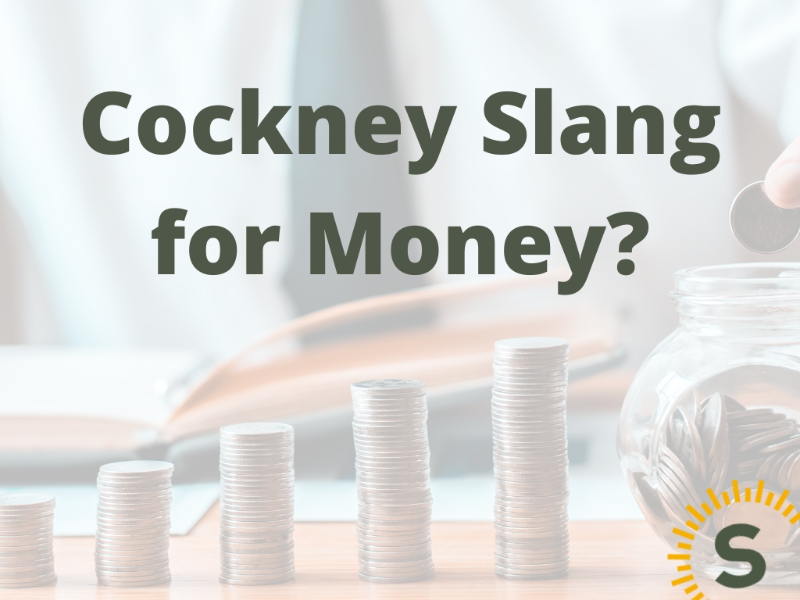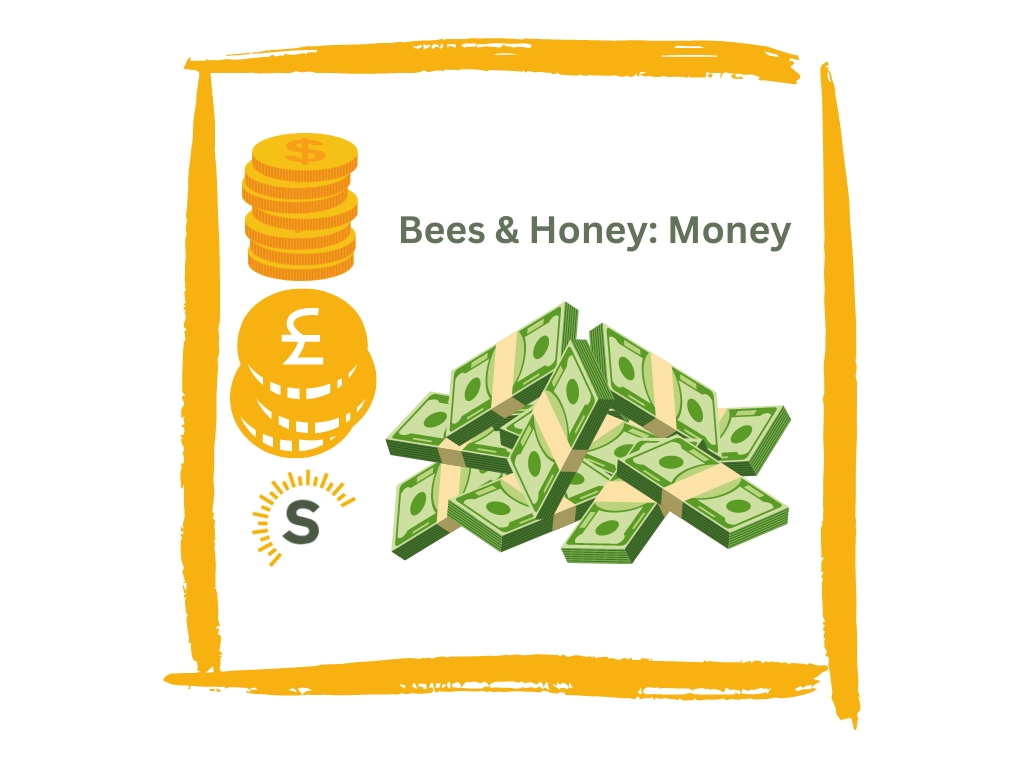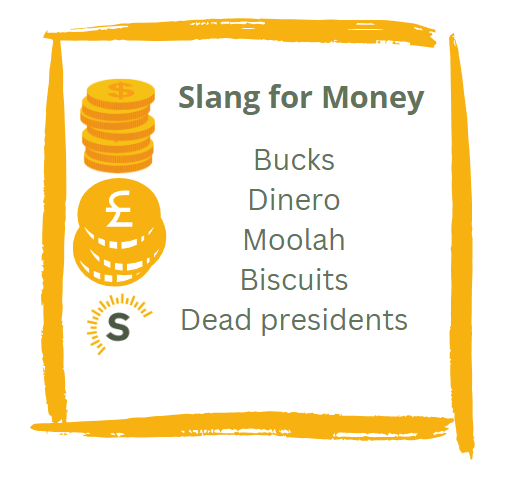
Are you ready to discover the fascinating world of Cockney slang for money - a unique language used by the vibrant Cockney community in London.
In this "just for fun" insight we will uncover its rich 19th-century history, humorous expressions, and popular terms like "bees and honey" and "sausage and mash."
Prepare to impress with your newfound knowledge of this intriguing linguistic tradition!
slang for money is creative and amusing. Common terms include "bees and honey" (rhymes with "money"), "sausage and mash" (rhymes with "cash"), "bread and honey" (rhymes with "money"), "speckled hen" (refers to a ten-pound note), and "Lady Godiva" (rhymes with "fiver").
When it comes to cockney slang for money, also known as London slang for money, the possibilities are endless. Cockneys have a knack for coming up with creative and often amusing terms to refer to their hard-earned cash.
Let's take a closer look at some of the most common cockney slang terms for money that you're likely to encounter in the East End and beyond.
These are just a few examples of the countless cockney money slang terms for money that are in circulation.
Each term has its own unique origin story and adds to the colourful tapestry of the cockney language.

To understand the world of cockney slang for money, it's important to delve into its history and origins. Cockney slang emerged in the working-class neighbourhoods of London in the 19th century, primarily amongst the East End communities.
It was a way for the local people to communicate covertly, often in the presence of authorities or outsiders, as well as to create a sense of identity and camaraderie among themselves.
Cockney slang is heavily influenced by the diverse cultural heritage of London, with elements of Yiddish, Romani, and Irish languages incorporated into its unique lexicon.
The distinct pronunciation and wordplay involved in cockney slang make it both an intriguing and challenging language to decipher.
Over time, the language has evolved and adapted to modern times, but its roots remain firmly planted in the history and culture of East London.
Cockney slang has seeped into popular culture, with many money slang phrases and expressions making their way beyond the streets of London. Here are some famous cockney phrases related to money that you may have encountered in movies, TV shows, or books:
These phrases are just a taste of the linguistic richness that cockney slang brings to the English language.
Cockney expressions have a way of capturing the imagination and adding a colourful touch to everyday conversations.
Cockney slang has long been a source of fascination for outsiders, and it has found its way into popular culture in various forms. From movies and television shows to music and literature, cockney slang for money has become synonymous with the vibrant and often gritty world of East London.
Let's explore some examples of how cockney slang for money is used in popular culture:
Cockney slang has made its mark on the silver screen, with films like "Lock, Stock, and Two Smoking Barrels" and "Snatch" featuring characters who effortlessly wield cockney slang, including terms for money.
Cockney slang has also found its way into the lyrics of popular songs. Artists such as The Clash, The Kinks, and Madness have incorporated cockney expressions into their music, giving their songs a distinct London flavour.
Cockney slang has been immortalised in literature, with authors like Charles Dickens and Martin Amis using it to add authenticity and flavour to their works. Characters speaking in cockney slang bring a sense of time and place to the stories they inhabit.
The influence of cockney slang on popular culture is a testament to its enduring appeal and the unique charm it brings to the world of entertainment.
If you're intrigued by cockney slang for money and want to learn more, there are plenty of resources available to help you master this unique language. Here are some tips for learning and understanding cockney slang:
Surround yourself with cockney slang by watching movies, listening to music, and reading literature that features characters speaking in cockney dialects. This will help you familiarise yourself with the vocabulary and pronunciation.
Engage in conversations with native cockney speakers, either in person or through online communities. This will give you the opportunity to practice your understanding of the slang and improve your pronunciation.
Look for books, websites, and online courses that offer lessons in cockney slang. These resources can provide you with a structured approach to learning the language and help you build your vocabulary.
Learning cockney slang for money is not just about mastering a new language; it's about immersing yourself in a rich cultural tradition and embracing the unique charm of London's East End.
There are countless slang for money terms used around the world, and new ones continue to emerge over time. Here are some common slang for money:
 Remember that slang terms can vary by region and change over time, so what's common in one place or era may not be familiar in another.
Remember that slang terms can vary by region and change over time, so what's common in one place or era may not be familiar in another.
In conclusion, cockney slang for money is a fascinating and vibrant language that adds a touch of humour and mystery to the conversations of London's East End. From its origins in the 19th century to its influence on modern language and popular culture, cockney slang has become an integral part of the fabric of British society.
The unique rhyming patterns and creative expressions used to refer to money showcase the ingenuity and linguistic prowess of Cockneys.
So, why not embrace the charm and uniqueness of money slang? Impress your friends with your newfound knowledge and immerse yourself in a linguistic tradition that has captivated generations. Remember, when it comes to cockney slang for money, "the sky's the limit" when it comes to creativity and wordplay.
Cockney slang for money has had a notable influence on the broader English language, particularly in popular culture and everyday speech. Many Cockney slang terms, such as "bread" for money or "quid" for pounds, have become widely recognized and used throughout the United Kingdom and even internationally.
This influence is evident in literature, music, movies, and television shows where Cockney expressions are employed to add authenticity or create a specific atmosphere. Additionally, the adoption of Cockney slang terms reflects the cultural interconnectedness of urban communities and how linguistic innovations can transcend geographical boundaries.
The development and preservation of Cockney slang can be attributed to several historical events and cultural factors. One key factor is the socio-economic conditions prevalent in London's East End during the 19th and early 20th centuries.
The working-class communities of this area often faced economic hardships, leading to the creation of a distinct linguistic identity as a form of solidarity and resistance against authority.
Cockney slang terms for money reflect the socio-economic context and daily experiences of the communities that use them in several ways.
Firstly, the rhyming patterns and playful nature of Cockney slang demonstrate the resourcefulness and creativity of working-class individuals in finding alternative ways to communicate within their communities.
Additionally, the slang terms often reflect the economic realities faced by these communities, with expressions like "sausage and mash" for cash or "speckled hen" for a ten-pound note drawing on familiar aspects of daily life.

Stuart is an expert in Property, Money, Banking & Finance, having worked in retail and investment banking for 10+ years before founding Sunny Avenue. Stuart has spent his career studying finance. He holds qualifications in financial studies, mortgage advice & practice, banking operations, dealing & financial markets, derivatives, securities & investments.





Our website offers information about financial products such as investing, savings, equity release, mortgages, and insurance. None of the information on Sunny Avenue constitutes personal advice. Sunny Avenue does not offer any of these services directly and we only act as a directory service to connect you to the experts. If you require further information to proceed you will need to request advice, for example from the financial advisers listed. If you decide to invest, read the important investment notes provided first, decide how to proceed on your own basis, and remember that investments can go up and down in value, so you could get back less than you put in.
Think carefully before securing debts against your home. A mortgage is a loan secured on your home, which you could lose if you do not keep up your mortgage payments. Check that any mortgage will meet your needs if you want to move or sell your home or you want your family to inherit it. If you are in any doubt, seek independent advice.